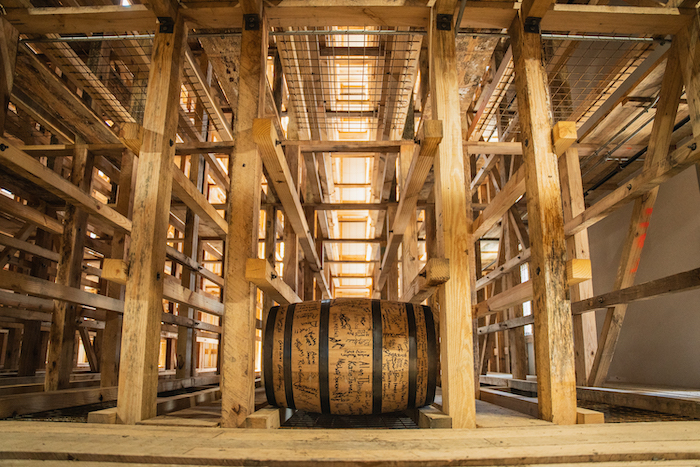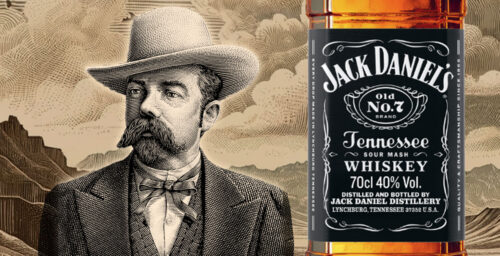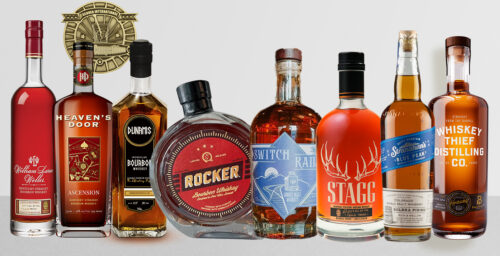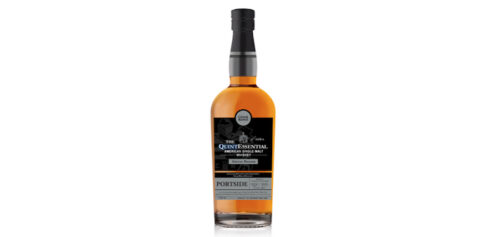As restaurants reopened and consumers traded up to premium spirits for at home entertaining during the second year of Covid, the distilled spirits sector achieved strong growth in 2021.
The Distilled Spirits Council of the United States recently explained the numbers in an economic briefing for analysts and media.
DISCUS President and CEO Chris Swonger reported that supplier sales in the United States were up 12 percent in 2021 to a total of $35.8 billion, while volumes rose 9.3 percent to 291.1 million 9-liter cases.

In 2021, spirits gained market share of the total U.S. beverage alcohol market with sales rising 1.7 share points to 41.3 percent. This represents the 12th straight year of market share gains for spirits overall.
“Last year, enthusiasm for spirits continued as consumers spent more to elevate their cocktail experiences with super-premium brands,” Swonger said in a prepared statement. “Consumers savoring spirits at home and trading up to higher-end brands, combined with the gradual reopening of bars and restaurants, resulted in record sales for the spirits sector. We’re also seeing strong growth for spirits-based ready-to-drink products, and that’s adding to our sector’s gains as well.”
Swonger noted that the premiumization trend, along with innovative COVID-relief measures such as cocktails-to-go, delivery and e-commerce, have helped to boost restaurants, bars and small distilleries as they continue to manage through the uncertainty and volatility created by the lingering pandemic.
Uneven COVID-19 impacts on U.S. hospitality industry continues
Swonger did say that while the spirits sector has remained resilient during the pandemic, the uneven economic impacts of COVID-19 remain for certain segments of the U.S. hospitality industry.
“The twists and turns of this pandemic continue to create volatility in the recovery of restaurants and bars,” Swonger said. “Restaurants showed signs of roaring back during the first half of the year but sales stalled in the second half with the new spike in COVID cases, staff shortages and supply chain disruptions. We will continue to advocate for more funding through the Restaurant Revitalization Fund to help them get back on the path to growth.”
Restaurant sales were up 53 percent in 2021 following nationwide restaurant and bar closures and restrictions. Off-premise sales volumes, which saw sharp gains in 2020, were flat in 2021.
Since the start of the pandemic, the National Restaurant Association reports that about 90,000 restaurants have temporarily or permanently closed, and the industry still hasn’t recovered more than 650,000 jobs.
Many distilleries continue to face major challenges from supply chain disruptions, including difficulty securing glass bottles, closures and labels, as well as rising costs of materials and transportation.
However, said Philip McDaniel, co-founder of St. Augustine Distillery, the uptick in tourism across the country will help support the recovery of small distilleries, which rely heavily on tasting room sales.
“There are now more than 30 spirits trails across the United States,” said McDaniel. “This growth in spirits tourism not only benefits distilleries, it also helps transform surrounding communities, and boosts state and local economies.”
Consumers’ preference for higher-end spirits accelerated in 2021
Christine LoCascio, DISCUS chief of public policy, noted that the premiumization trend accelerated in 2021.
“Nearly 82 percent of the spirits sector’s total revenue increase was from the sale of high-end and super-premium spirits brands,” said LoCascio. “Purchasing luxury spirits to create craft cocktails was a simple pleasure for spirits consumers who hunkered down at home and curtailed spending on vacations and dining out for a second year in a row.”
LoCascio said that tequila was a key driver of growth accounting for nearly one-third of the total increase in spirits revenue.
“From sipping fine tequilas, to enjoying classic cocktails like the margarita and paloma, consumers’ tastes for super premium tequila took off in 2021,” LoCascio said.
2021 spirits category trends
The top 5 spirits categories by revenue:
- Vodka sales up 4.9 percent or $341 million to $7.3 billion.
- Tequila/Mezcal up 30.1 percent or $1.2 billion to $5.2 billion.
- American Whiskey up 6.7 percent or $288 million to $4.6 billion.
- Brandy & Cognac up 13.1 percent or $403 million to $3.5 billion.
- Cordials up 15.2 percent or $376 million to $2.9 billion.
Top five fastest growing spirits categories by revenue:
- Premixed cocktails including spirits-based RTDs up 42.3 percent or $489 million to $1.6 billion.
- Tequila/Mezcal up 30.1 percent or $1.2 billion to $5.2 billion.
- Irish Whiskey up 16.3 percent or $185 million to $1.3 billion.
- Cordials up 15.2 percent or $376 million to $2.9 billion.
- Single Malt Scotch up 14.4 percent or $130 million to $1 billion.
2021 legislative and policy changes
Swonger discussed public policy in 2021 on the federal and state levels including progress on the tariffs front.
“After three very difficult years of sagging American Whiskey exports, the EU and U.S. are back to a zero-for-zero tariff agreement on distilled spirits thanks to the Biden administration’s efforts to reset trade relations and bring an end to the needless damage being done to U.S. businesses caught up in the trade disputes,” said Swonger. “It’s time now for the UK to lift its tariff on American Whiskeys so we can get back to sharing the special taste, heritage and quality of America’s native spirit with our UK consumers.”
Federal:
- A two-year suspension of the EU Tariffs on American Whiskey in steel-aluminum dispute and a five-year suspension of U.S., UK and EU tariffs on spirits products in Boeing-Airbus dispute.
- Inclusion of small distilleries in the Restaurant Revitalization Fund legislation.
- Inclusion of impaired driving prevention measures in the federal infrastructure bill.
State:
- Cocktails to-go now permanent in 16 states; additional 14 states passed legislation to extend measure.
- Retailer home delivery laws passed in eight states.
- Tax reductions secured for spirits-based RTDs in Michigan and Nebraska.
- Passage of N.C. law permitting distilleries to sell bottled spirits on Sunday.
2022 legislative and policy priorities
Swonger outlined the top priorities for DISCUS in the coming year, including:
- Securing the immediate suspension of UK tariffs on American whiskeys.
- Continued support of the Restaurant Revitalization Act funding for restaurants, bars and distilleries affected by the ongoing pandemic.
- Legislation to permit the U.S. Postal Service to ship beverage alcohol in those states where it is currently permitted.
- Fairer tax treatment and increased access for spirits-based ready-to-drink (RTD) products in the states.
- Expanded marketplace modernizations including cocktails to-go, spirits direct-to-consumer shipping and the repeal of existing Sunday sales bans in SC, NC, MT, TX and MS.






